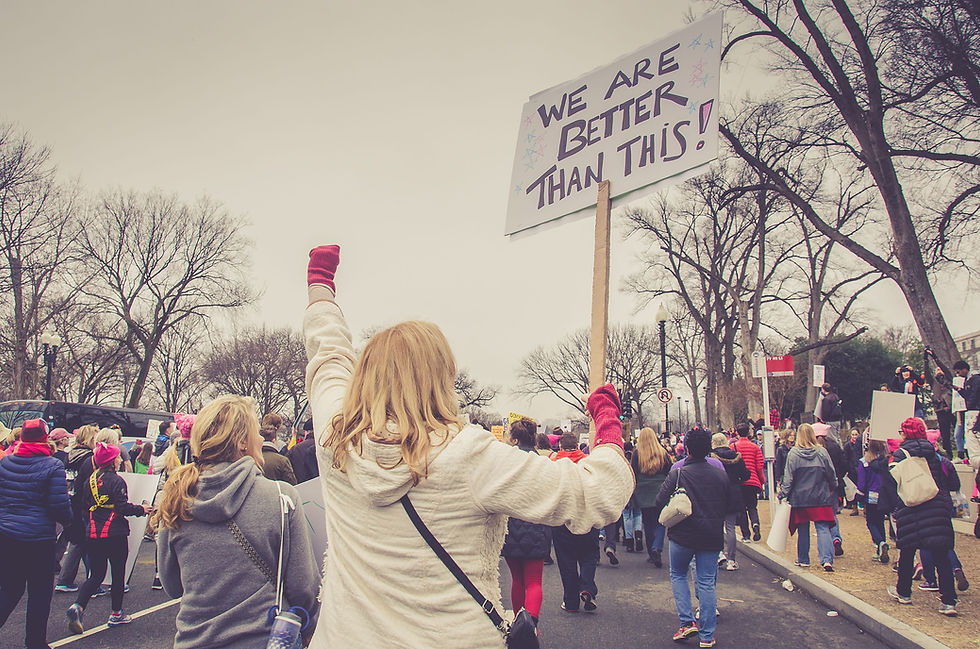- Jul 28, 2019
- 3 min read

Word Count: 750
This was an article I wrote for a Christian student magazine, SALT, in Oxford back in 2017. I recently rediscovered it, so I thought I'd post it here with a couple small edits!
---------------------------
Love your neighbour as yourself? Love your enemy? Turn the other cheek? These famous sayings of Jesus were big enough asks two millennia ago, yet today, it is so easy to feel that the call on our character and moral duty is even greater. A combination of our knowledge of our own privilege in modern British society alongside an all-seeing media that presents us with the many problems and injustices present in our world leaves us with nowhere to hide. The magnitude of the moral task before us is overwhelming.
And so it should be. The moral task before us is far too impossible for us to ever make so much as a dent. In fact, it’s so big that, I’d much rather talk to you about a far smaller moral dilemma than the injustice in the world. Let’s talk about spiders! (Bear with me).
Imagine you’re in the garden, pulling out some weeds, when suddenly a large spider jumps out from where it had been resting under a leaf and crawls on your hand. You panic. You’ve never particularly liked spiders, and you certainly don’t want one crawling on your hand. It runs to hide underneath the next weed you intended to pull out. What do you do? This same dilemma came to me a few years ago and I chose the most convenient option: I killed the annoying, frightening little creature. But wait a minute, I thought we were talking about the difficulty of truly loving a world whose darkness seems so vast? Indeed, we are, but entertain me a little longer.
Many years ago, I read in a book something which is very similar to Luke 16:10; that if God knows you can be faithful in the small things, he will trust you to be faithful with the big things. If we have dreams to love our neighbours as ourselves and to eradicate the injustices in the world, then we must start with the small things that don’t matter. So, I ask you this time, would you kill the spider? I admit, this question sounds almost ridiculous and if someone else was asking me this right now I’d be tempted to laugh just from the sheer incredulity that it seems to be being asked with such seriousness. However, I am quite serious because I firmly believe that our actions in those situations that don’t 'matter' reveals our character and the principles we really live by. You say you want to love your neighbour as yourself, but what is your attitude and how loving are you in those small everyday situations which in and of themselves are unlikely to change much? What do you do when your friends are gossiping about someone? Are you waiting until you have a secure job and salary before you consider donating money regularly to charity? Do you stick with just talking to those friends you like best and are fun, or do you talk to the socially awkward kid who is an effort to talk to? Do you find yourself consistently walking past that homeless man because, unfortunately, you just never have time to say hello? Do you shout back when your mum has unfairly decided to take out her anger on you after a stressful day at work?
I don’t think it is a coincidence that St. Francis of Assisi, a man who played a significant part in revitalising an increasingly dead and lukewarm European Christianity in the 13th century, is also well-known to have spent much time preaching to animals (hence he is the patron saint of animals). Indeed, although many of his actions were about things which 'mattered', there is no doubt that Francis was also a man who had a lot of time and a lot of love for those creatures (and people) which didn’t matter. The heart that the Holy Spirit can transform to love even those things that seem inconsequential is a heart that God can use greatly. Our character is important to God because if we are the tools by which God will transform this dark world, then He needs tools that He can use. The fruit of the Spirit which He gives us -- love, joy, peace and all the rest -- are given to make us just such tools of transformation. However, we will never love big unless we are willing to love small.
You say you want to change the world? Why not start with the awkward kid in the playground. You say you want to love your neighbour as yourself? Why not start with the annoying spider.
Notes
*Image by Hans Braxmeier from Pixabay


















